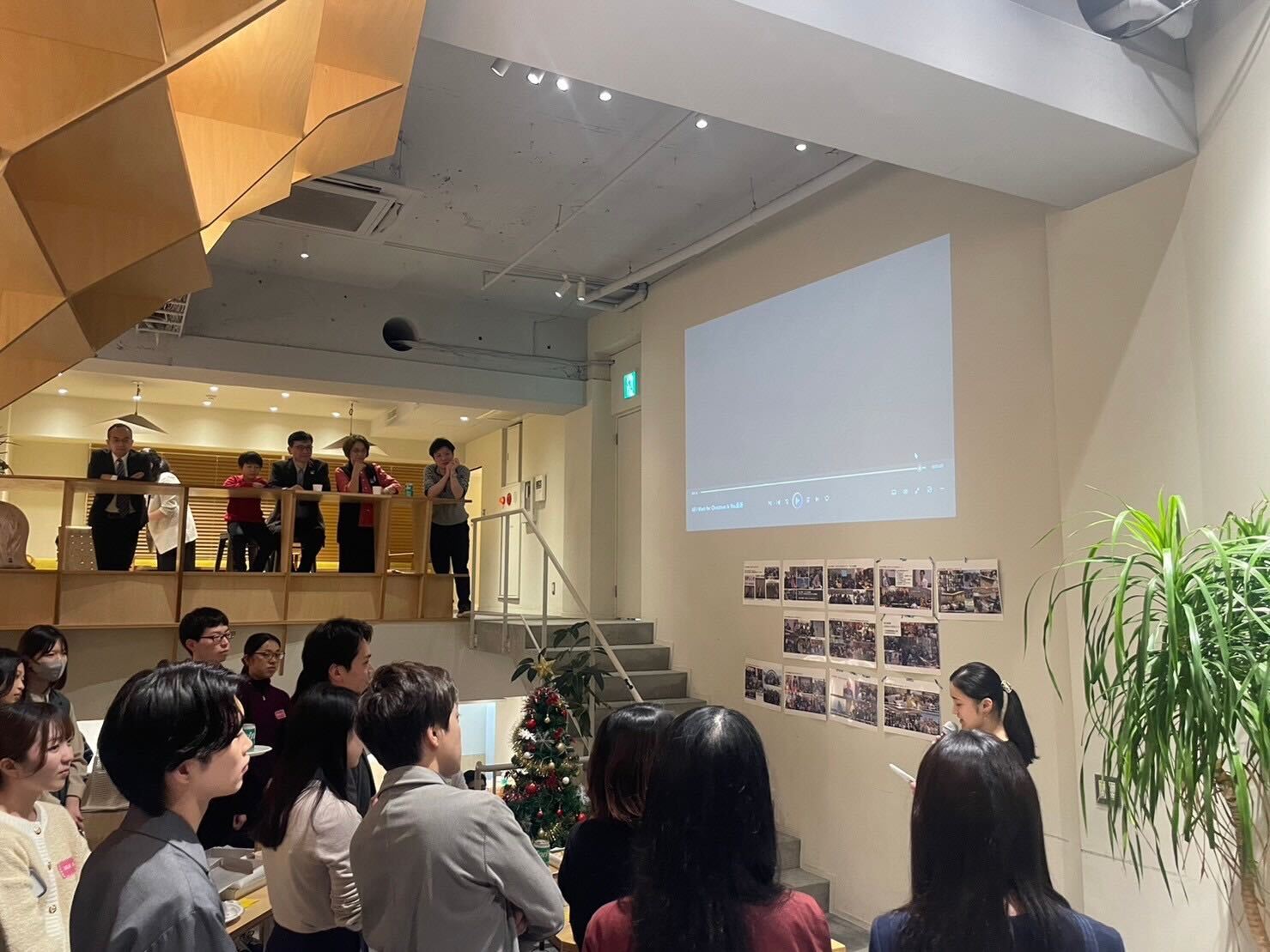- HOME
- Activities
- Forum List
- Forum Details
December.16.2023 KIP December Forum "

This year's Shiwasu Meeting was combined with the March symposium and was held in two parts. In the first part, presentations were made on research projects for 2023, followed by a debate on "Should Elementary School Students be Required to Experience Agriculture? In the second part, a book exchange, quizzes, and songs were held during a standing buffet party, making it a very meaningful and happy time.
【Project Presentation】
In the first part, the member of 2023 KIP project gave a presentation on the "Japanese-Australian Youth Attitude Survey on Primary Industries, Especially Agriculture," which revealed that "many young people in both Japan and Australia think primary industries are hard work" and "many young people want to be involved in agriculture as a hobby. The survey also revealed that "many young people in Australia and Japan think primary industries are hard work" and "many young people want to be involved in agriculture as a hobby. And through practical training and interviews at production and policy sites in Australia, it was found that young people are highly motivated to get involved in agriculture-related industries in addition to being farmers, and in fact, many fields that do not seem to be related to agriculture, such as economics and social infrastructure studies, are actually working well together with agriculture and co-prosperity. These findings may provide good suggestions for considering measures to increase the proportion of agriculture-related population in Japan, especially among young people. During the Q&A session, we came to a common understanding that rather than simply increasing the number of people engaged in agriculture, we should increase the "agriculture-related population" who are actually involved in supporting agriculture in various fields that can be linked to agriculture.
【Discussion Session】
Next, a debate was held on the question of whether Japanese elementary school students should be required to experience agriculture as an out-of-school learning experience. In the group discussion, participants shared their backgrounds and experiences in agriculture. Some had worked as consultants supporting agriculture-related companies, some were directly involved in agriculture at food manufacturers, and some had actually spent two days in an intensive farming experience when they were in junior high school. The first focused on the age group of "elementary school students," pointing out that since elementary school students are still immature, it would be more reasonable to have them learn "food education" and "appreciation" for food rather than to have them experience agriculture as a career choice, and that if the goal is to increase the number of people involved in agriculture, it would be more appropriate to have junior high school students than elementary school students. Secondly, there were strong arguments against making it compulsory from a philosophical point of view, focusing on "making it compulsory," such as "people naturally have antipathy to being obliged to do something. Third, opinions were divided on the question of whether and to what extent such agricultural experiences should be implemented nationwide. While it was argued that if it were to be done, it would be more effective to do it thoroughly and for a longer period of time, such as a week, there were counterarguments that if it were to be made mandatory, it would be better to do it for a shorter period of time, which would lower the risk of antagonism and reduce the burden on teachers. Although the majority of the participants were opposed to this theme, the discussion was so heated that some people changed their positions midway through the session after hearing their opponents' arguments, and the participants deepened their understanding of the significance of agricultural experience and its mandatory nature.
【Overall Impression】
What impressed me the most was the opinion expressed in the general discussion: "Rather than simply increasing the number of farmers, we should increase the number of people involved in agriculture in various fields that can be linked to agriculture. I was impressed by this very insightful opinion. Then I realized that I could not have come to such profound conclusions without the wonderful projects and debates that have taken place this year. When one is trying to come up with a solution to a social problem, one must first learn the basic theory of the problem, preferably at a university, in order to avoid being stuck in a theoretical vacuum. Then, through a series of discussions, surveys, projects, etc., the actual situation is identified, and the acquired theory is used to logically elucidate the actual situation through discussion with others, and only then can policy proposals be made. This sequence of events is the very guideline of KIP, and I was able to reaffirm it through this Shiwasu forum. I also felt that it was very meaningful to have a "place" for free exchange rather than a debate, such as the standing buffet party in the second session, to promote a wide range of exchanges regardless of generation, gender, background, and so on.
Yining Fu, Sophomore, College of Liberal Arts, The University of Tokyo


